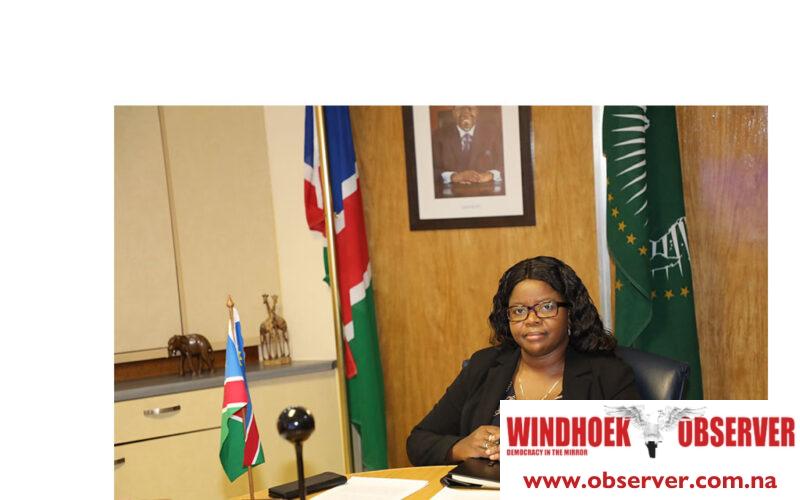Niël Terblanchéon
Trade between Namibia and the European Union (EU) has been on the rise and is constantly driven by new agreements and partnerships.
The Deputy Minister of International Relations and Cooperation, Jennely Matundu, highlighted the increased and positive collaboration during the 74th anniversary celebration of Europe Day in Windhoek on Tuesday.
Matundu stressed that the partnership is promoting the development and beneficiation of raw materials and renewable hydrogen to support green and digital transformation.
“Over the past 34 years, Namibia and the EU have built a strong relationship based on political and social dialogue, trade and sustainable development, economic cooperation, and humanitarian aid,” she said.
Matundu highlighted several projects and programmes supported by the EU in Namibia.
She said that among these is the recently launched N$320 million EU-Namibia Early Childhood Development Sector Reform programme, which will run for three years.
“Another significant initiative is the N$45 million Waste Buy Back Centre, aimed at improving solid waste management in the City of Windhoek,” she said.
Matundu added that in addition to ongoing funding through the European Development Fund (EDF), the EU has made huge contributions to Namibia’s Green Hydrogen project, tertiary institutions, and port infrastructure development and sustainability, among other sectors.
She acknowledged these contributions and reiterated their importance in advancing Namibia’s economic and social development.
Ana Beatriz Martins, the EU’s Ambassador to Namibia, reiterated the union’s commitment to forging a vibrant relationship with Namibia.
She stressed that the shared objective of accelerating sustainable and inclusive green growth is central to the EU-Namibia partnership.
Martins mentioned that various consortiums between Namibian and European companies are making significant progress on pilot projects funded with approximately 20 billion Euros, equivalent to N$400 billion at the current exchange rate.
Europe Day, observed on 9 May each year, marks the anniversary of the historic Schuman Declaration.
In 1950, French Foreign Minister Robert Schuman proposed the creation of a European Coal and Steel Community, the first step towards the economic and political integration of European countries.
By combining the production of coal and steel, two essential resources for military power, the initiative also aimed to prevent future conflicts.
The declaration is considered a foundational moment in the creation of the European Union, symbolising peace, unity, and cooperation among European nations.




